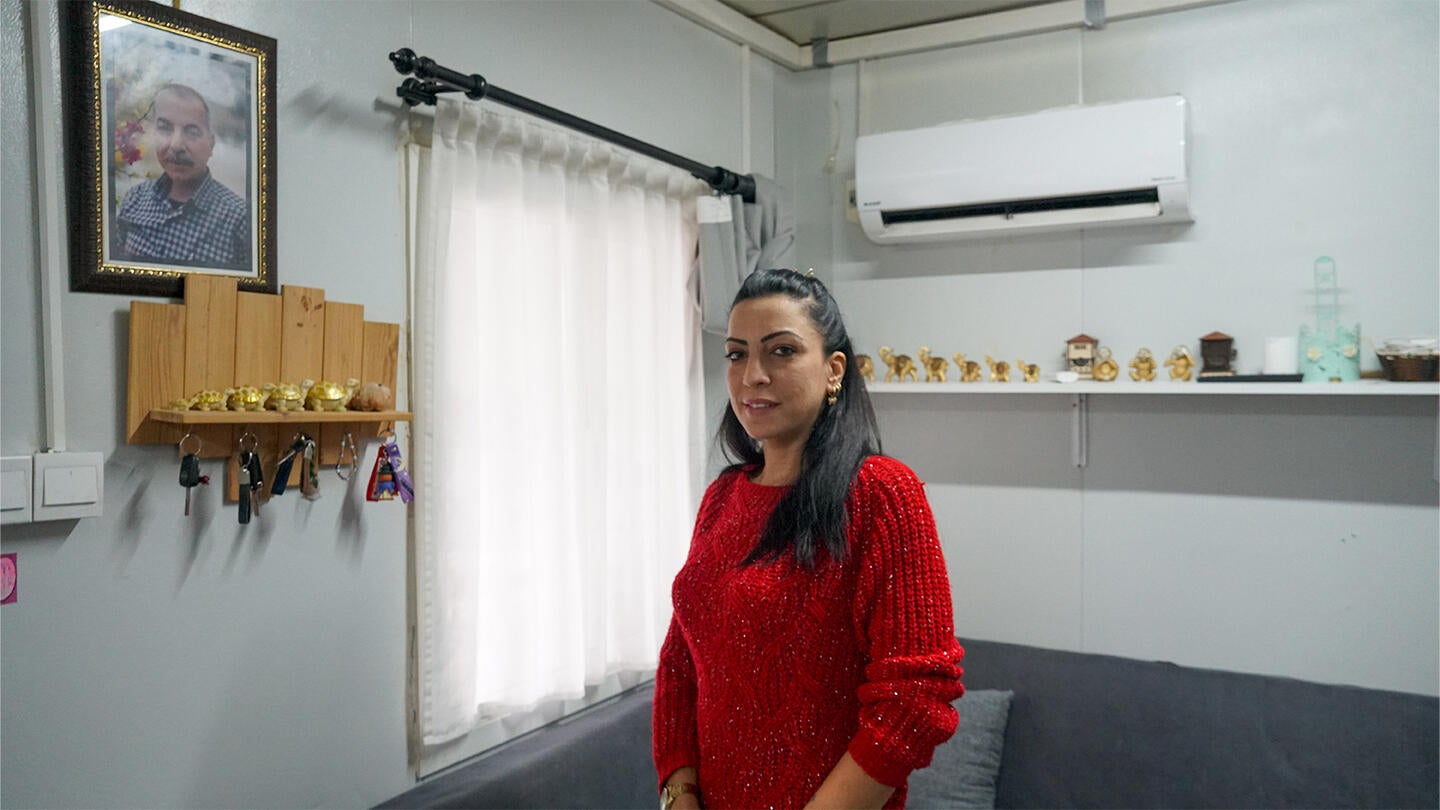Precisely two years have passed since the earthquakes of February 6, 2023 that deeply shook the entire Türkiye. For women and girls, who have been disproportionately affected by the earthquakes that directly affected the lives of approximately 9 million people and caused more than 3 million people to lose their homes, living conditions are still difficult. Their needs still continue. The UN Population Fund (UNFPA) is working in partnership with the The Associaton of Public Health Specialists (HASUDER) to empower women and girls in Hatay. Hear more from these women.
HATAY - "If someone walks around, we immediately feel the shake. When it is shaken,we experience that fear again," Selda says, describing the fear that she experiences every day. Saliha summarizes the economic difficulties, "Since my husband is the only one who works in the household, we say “let's buy it this month and that the other thing next month." Fatma says "We never know when we will be able to move into our homes. We are looking at the process. We persevere,". Thousands of women like Fatma, Mehtap, Selda and Saliha continue to experience many important problems such as the needs in accommodation, the lack of private space in the containers, psychological problems brought on by the disaster, the disruption in education and inadequate sources of income. In addition, the barriers to access for women's health and social protection services make them more vulnerable.
The UN Population Fund (UNFPA), in partnership with the The Association of Public Health Specialists (HASUDER) continues its solidarity with women and girls who were disproportionately affected by the earthquake . Our service units continue to provide reproductive health services, including women's and maternal health, through a doctor, a midwife and a nurse to women and girls affected by the earthquakes.
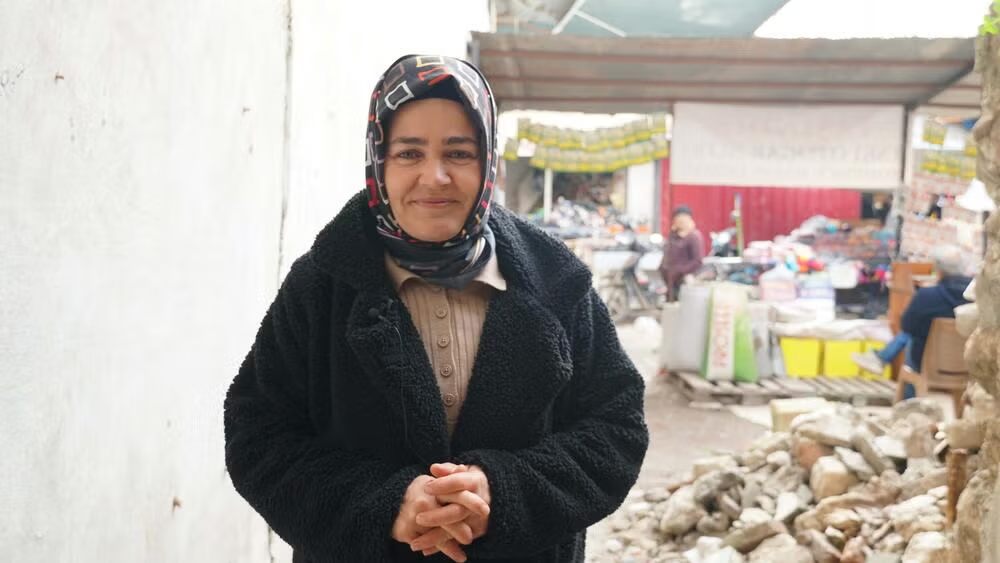
Fatma’s story:
Following the devastating earthquake, Fatma (48), a mother of three, spent a week with her family in the streets before moving to a tent where they lived for the next three months. Fatma, who is telling the story of the day they settled in the container city while holding her daughter tightly, says, “When we arrived at the container, warm-hearted people welcomed us with chocolates, clothing and food aid, I cried with joy that night because after months, we had a space of our own. After the tent, I felt like I was in a palace.”
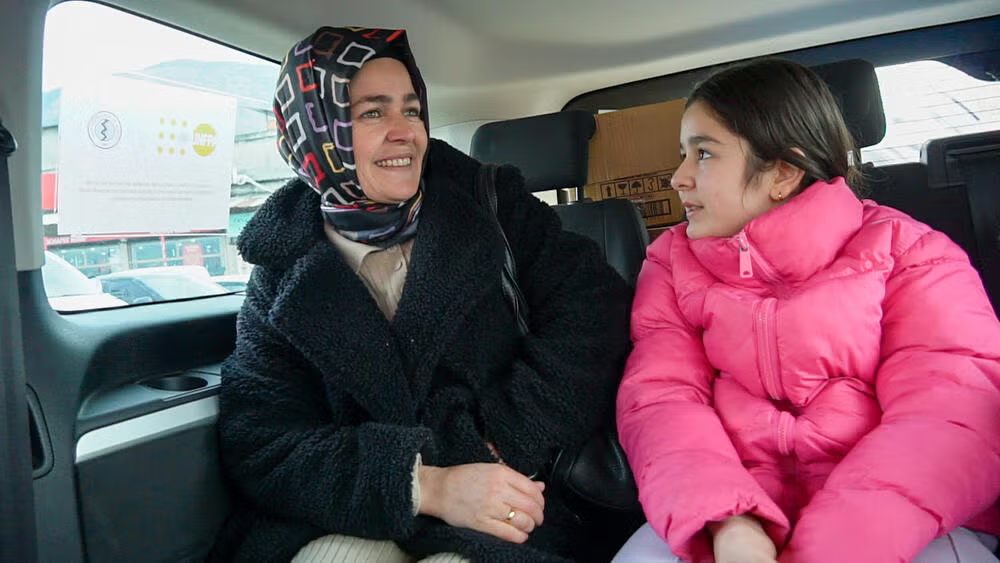
Conveying that she is very happy to have women and reproductive health service unit implemented in partnership with UNFPA and HASUDER in the container city, Fatma says that she received information about women's health, modern contraception, hygiene, the changes children go through during adolescence and their emerging needs at the service unit.
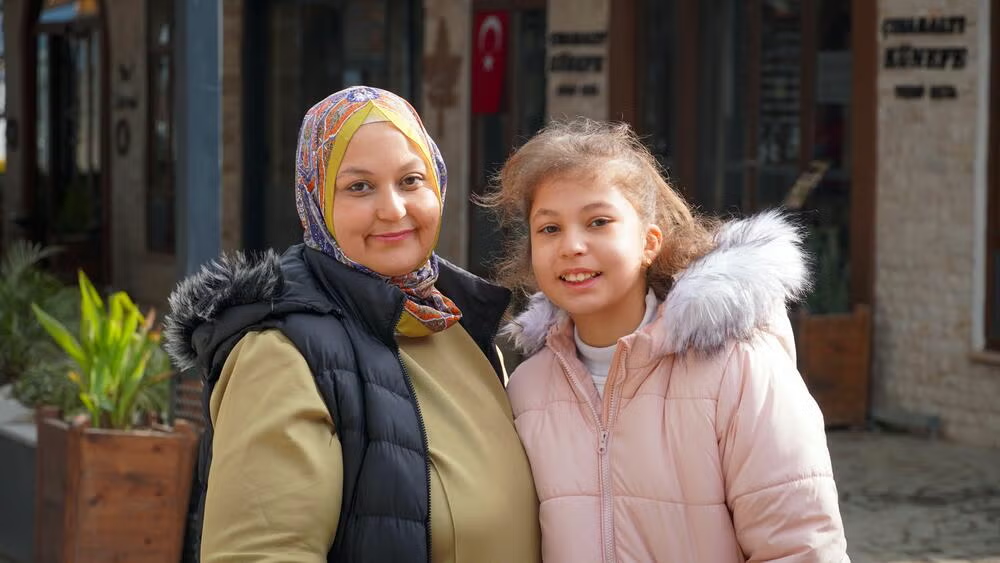
Mehtap’s story
Mehtap (38) went to Antalya with her family after losing her house in the earthquake two years ago, but returned to Hatay with her family because her son, who is a high school senior, could not get used to the city. “I do not regret returning. My son is now the valedictorian in his school, I am very happy,” says Mehtap. She says that even though two years have passed since the earthquake, they still cannot overcome their fears, that they live in fear of earthquakes every day and that they feel insecure when their husbands go to work in the mornings.
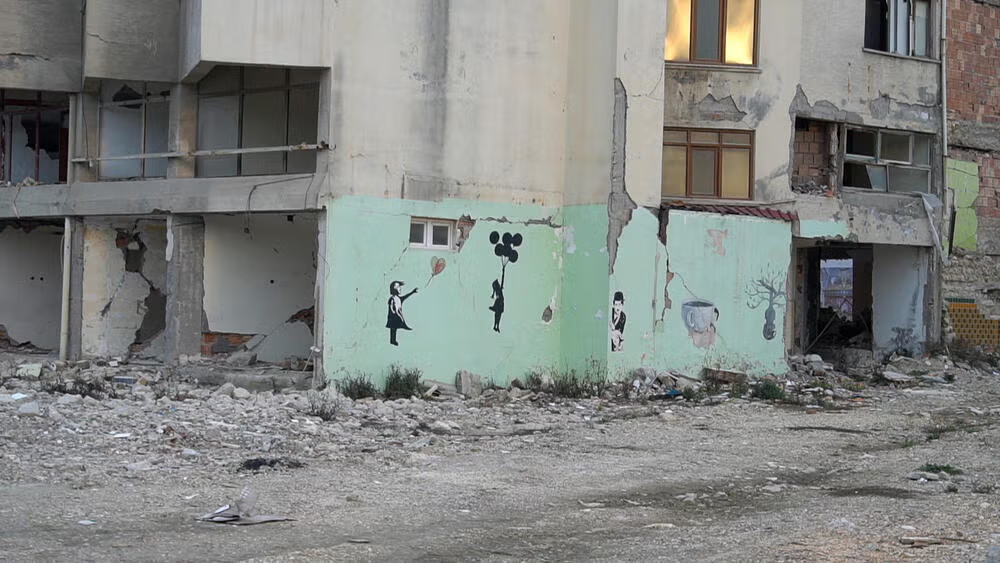
“I was pregnant, I didn’t know it. I paid a visit to your service unit, after I told the nurse about my symptoms, she told me that I might be pregnant, and accompanied me to the hospital and said if you don’t have anyone, I will stay with you,” says Mehtap, a mother of two.
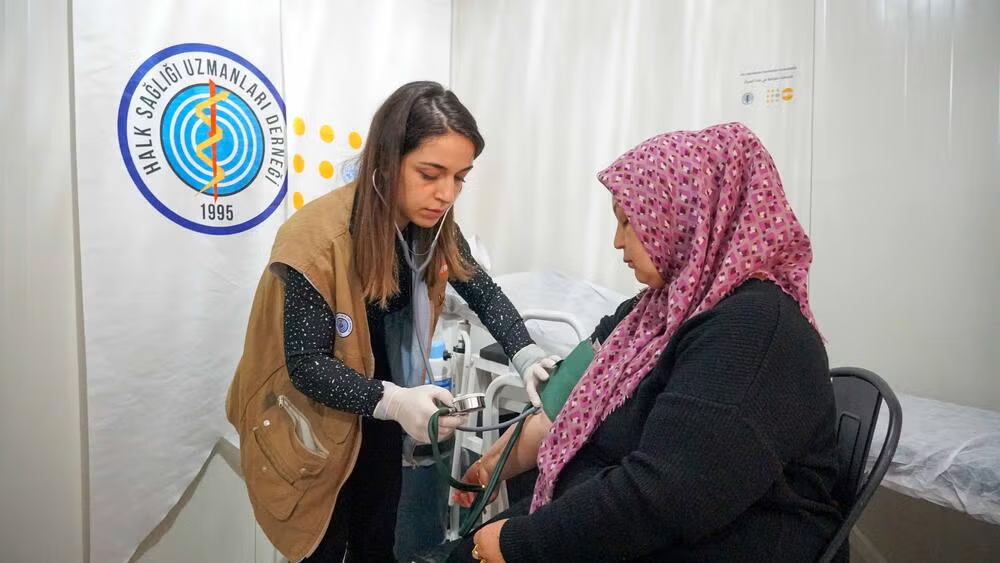
Mehtap, who stated that she received information about women’s and reproductive health at the service unit and that both she and her 12-year-old daughter received support for their well-being, tells us that the only reason she dreams is for her children. “After experiencing the earthquake, we said ‘we saw what we were going to see’, now we want our children to live a good life.”
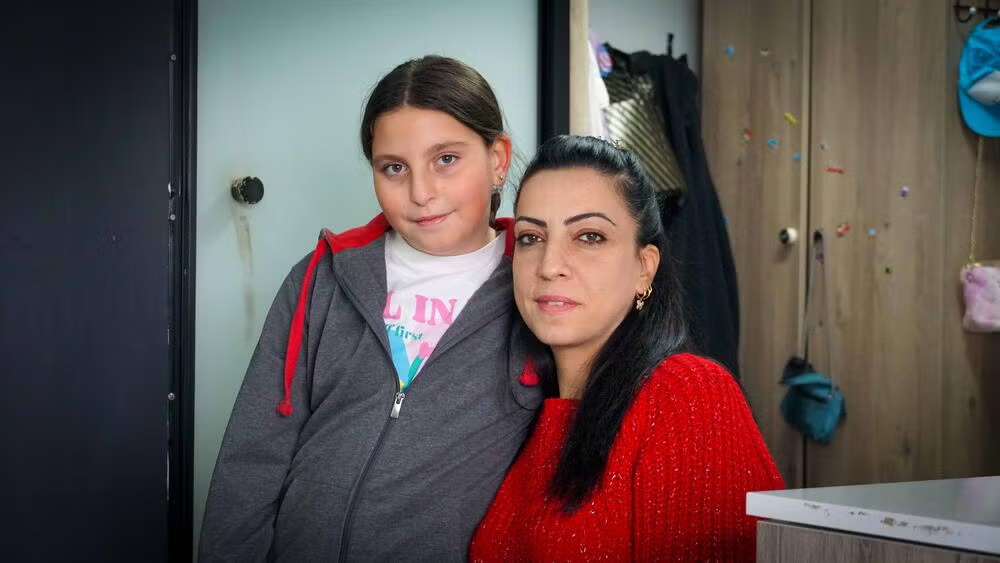
Selda’s story
Raising her three daughters as a single mom, Selda (40) lost both her home and her source of income after the February 6 earthquakes. Stating that she had led a stable and beautiful life with her daughters when she was working as a hairdresser and beautician, Selda says that they started to put their lives back in order with the friendships they made in the container city in the 2 years following the earthquake.
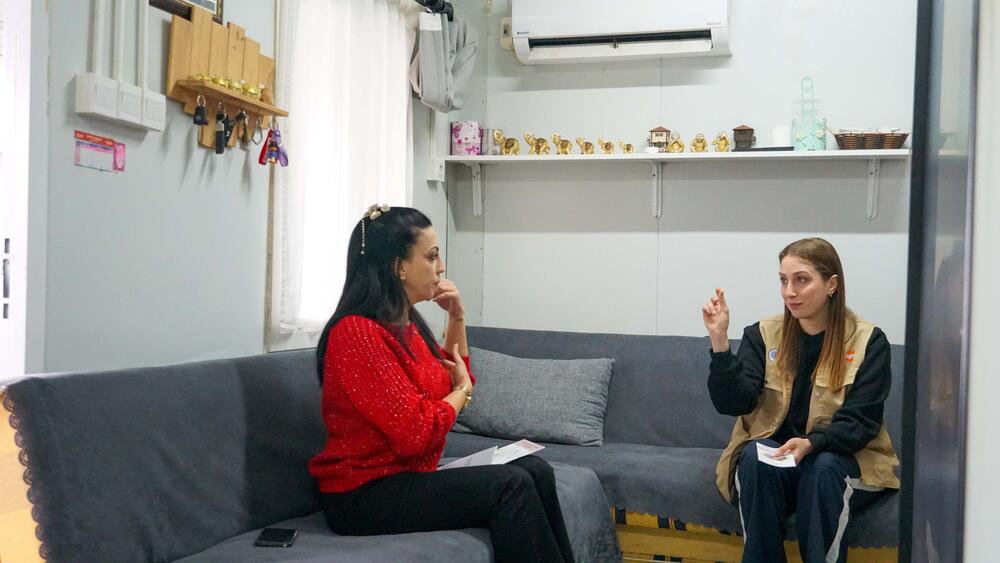
Selda attended the awareness session held at our service unit and gained information on women's health, children's health, and hygiene. Then, she was examined for her own health, went to the hospital with the service providers for her infection and received treatment, and then monitored her health more closely with the service unit staff. She summarizes the current needs, "Young people have poor knowledge of protection, cleanliness, and hygiene. They need to be informed about these issues both in institutions and at home."
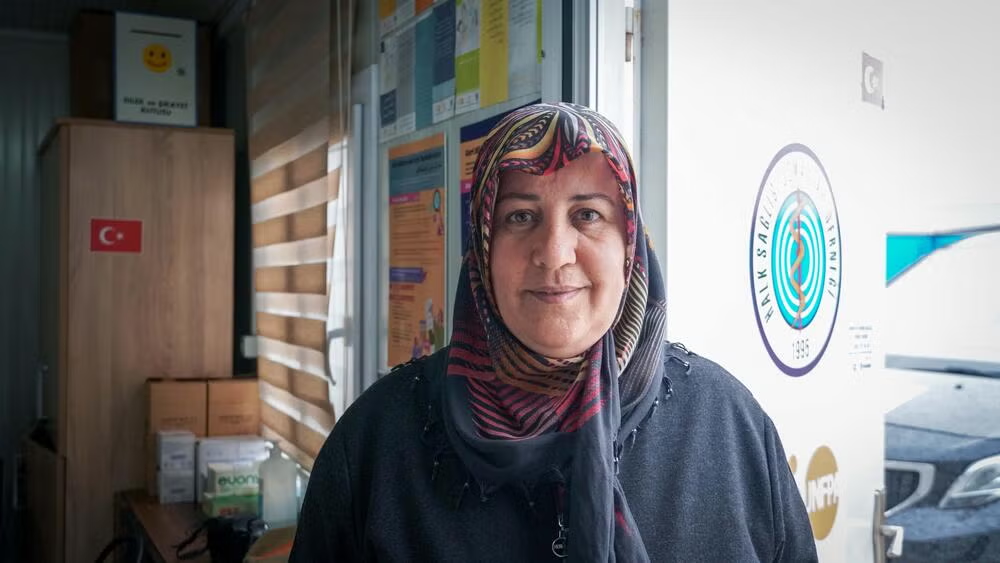
Saliha’s story
Saliha (43) was living in Hatay with her husband and four children before the earthquake. After the earthquake, they lived in Bodrum, Niğde and Konya for a while, but eventually returned to Hatay. “We grew up here. My children did not want to live anywhere else either.”
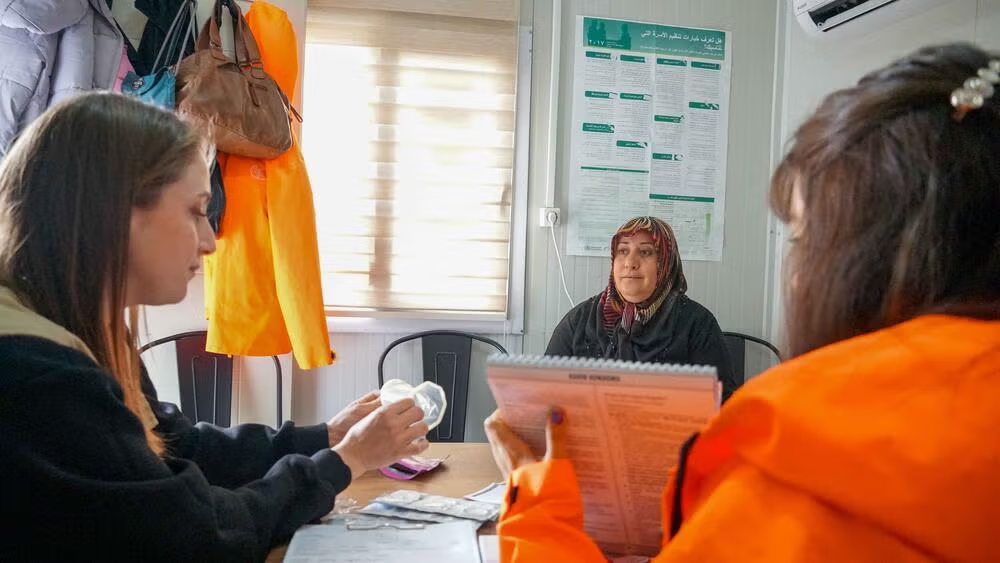
Saliha learned about our women's and reproductive health service unit through her neighbors. When she visited the service unit with her daughter, she started taking medication to relieve her afflictions; for her greater needs, she was referred to the hospital with the support of the service providers and transportation was provided. “My daughter is growing up now, she has learned what she needs to do for hygiene and health. We were very happy to find someone who cares about us, we felt that they were standing with us.”
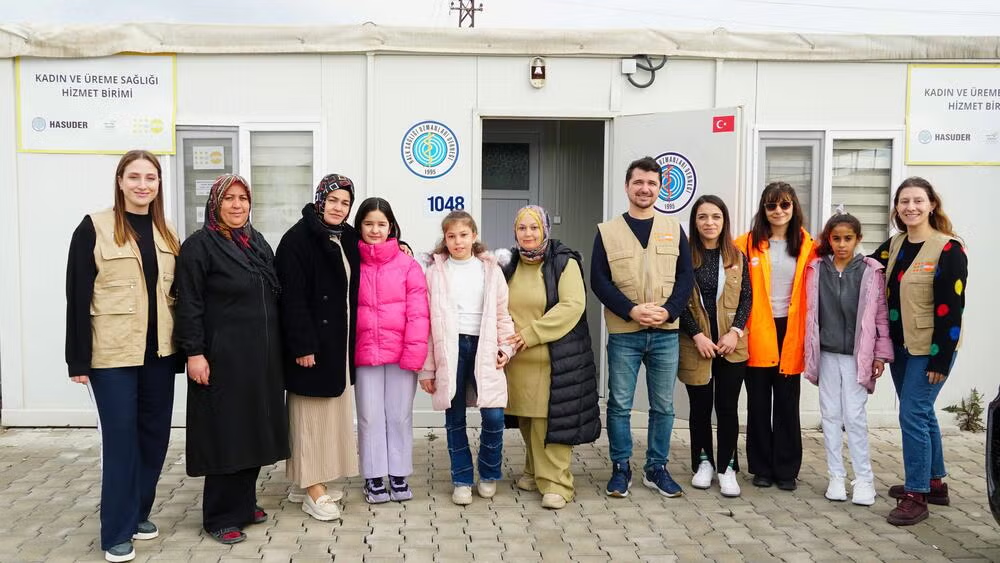
The needs of women in the earthquake region have increased due to the devastation caused by the disaster, and because of the disruptions in health and protection services, and income sources. Despite these challenges, women are working together, supporting each other, and finding strength in unity to build a better future. The United Nations Population Fund (UNFPA), in partnership with the The Association of Public Health Specialists (HASUDER), continues to provide information and services to empower women, girls and youth in Hatay after the devastating earthquakes that took place two years ago.

